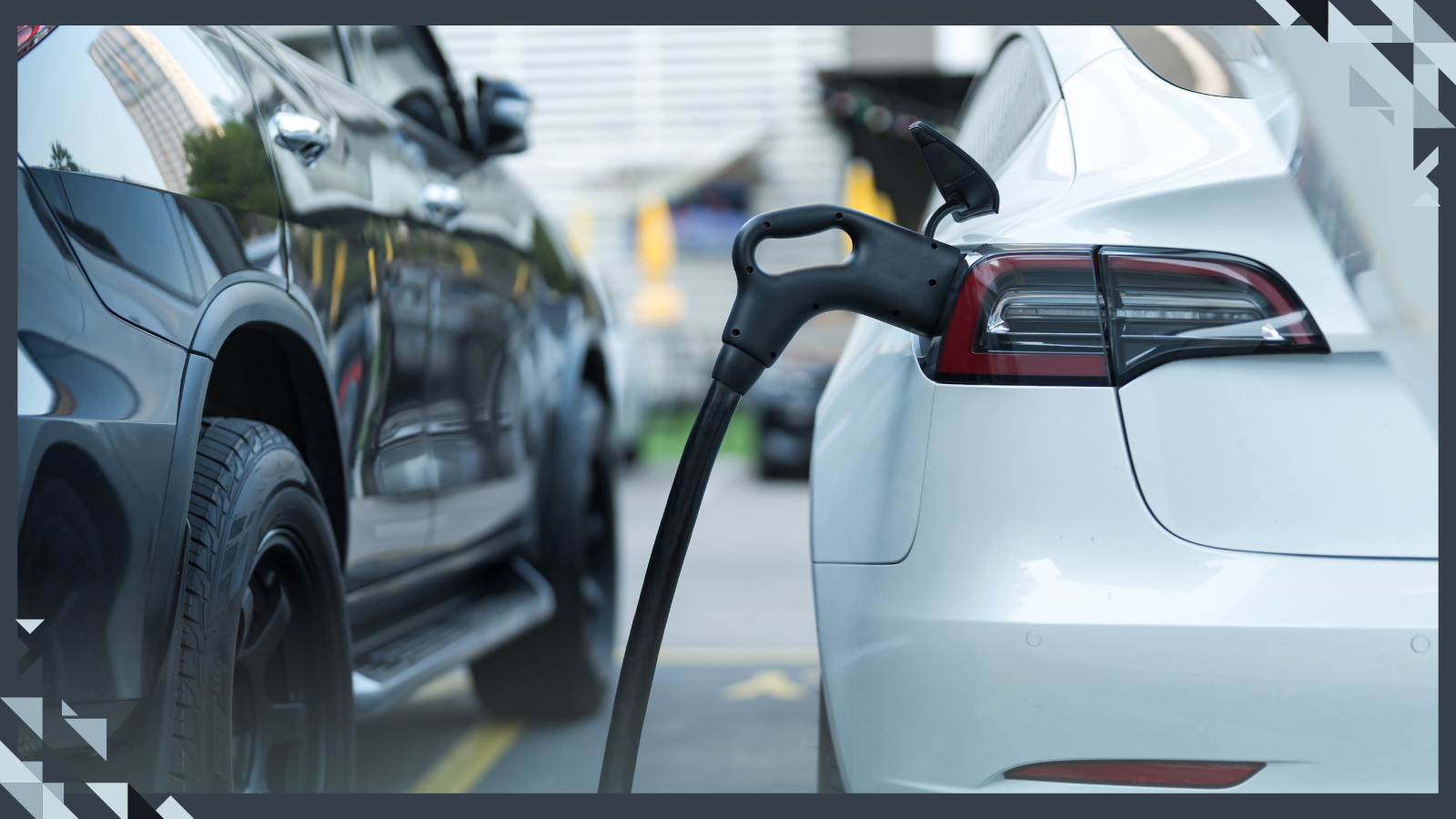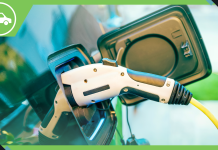Written by: Jeniffer Solis, Nevada Current
Electric vehicles are gaining ground in Nevada, with new cheaper models and federal incentives enticing drivers away from gasoline-dependent transportation.
The U.S. Environmental Protection Agency is expected to soon issue updated pollution limits for new passenger cars and trucks that could slash billions of tons of planet-warming carbon dioxide pollution.
And in Nevada, the push for widespread electric-car adoption by President Joe Biden could also be a boon for the state economy.
EV advocates at a press conference Wednesday highlighted how electrification has created high-paying union jobs and billions in infrastructure investments.
Nevada has pulled in $15 billion in private investment in electric vehicle and battery production, creating more than 12,000 jobs, according to a recent analysis by the Environmental Defense Fund, an environmental advocacy group.
Nevada ranks fifth in the country for new investments in electric vehicle and battery manufacturing, according to the Environmental Defense Fund. The state also ranks fifth in terms of electric vehicle adoption per 1,000 vehicles, with about 45,000 registered electric cars on the road.
Investments in infrastructure for electric vehicles have been spurred by $27 billion in federal, states, and local investments nationally.
The International Brotherhood of Electrical Workers Local 1245 in Nevada has trained thousands of union workers to meet those new demands of electric vehicle infrastructure. Hunter Stern, assistant business manager of IBEW Local 1245, said large investments in charging stations in the state have already resulted in good-paying union jobs for Nevada residents.
In 2021, the Nevada Legislature passed a mandate requiring NV Energy to implement a plan to expand infrastructure for charging stations. The utility invested $100 million in an effort to build nearly two thousand electric vehicle chargers over three years.
“That’s now jobs for IBEW members,” Stern said, during the press conference at the Las Vegas Convention Center. “We hope to install more and more charging stations at facilities like the convention center. We’ve gotten charging stations in many of the casinos and hotels here in Las Vegas, and in Reno and Sparks, but we want more.”
A recent analysis by the International Council on Clean Transportation found that the growth of charging infrastructure could create more than 160,000 jobs by 2032, while about 50 percent of those jobs will be electrical installation, maintenance and repair jobs.
“Those numbers are going to be skewed higher here in Nevada because of the commitment the state has already made, the plans that are being made, and the work that is coming,” Stern said.
Stern said IBEW Local 1245 in Nevada has trained more than 1,000 workers in the state to work on transportation electrification and has increased the training capacity at facilities in the state to train enough workers to meet demand.
“The state adopted an aggressive, IBEW-endorsed EV charging infrastructure plan that has already met several of its targets. We are meeting the moment,” Stern continued.
Nevada is also on track to receive $38 million from the National Electric Vehicle Infrastructure (NEVI) program, funding that will pay for even more charging stations in the state.
Clark County Commissioner William McCurdy highlighted the county’s plan to achieve net zero emissions by 2050, a goal that will require electric vehicle buy-in, said McCurdy.
“It’s our job as elected officials to address extreme heat and attain air quality standards. Nearly a third of greenhouse gas pollution comes from the transportation sector, and zero emission clean cars will protect the health of Las Vegas and help clean our air,” McCurdy said.
“We’re doing everything we can to improve our electric vehicle infrastructure,” he continued.
Electric vehicles are also becoming more affordable in Nevada, according to the International Council on Clean Transportation.
There are 37 EV models available in Nevada for less than the average new vehicle purchase price of $48,000, with 12 models available for less than $35,000, said David Kieve, president of Environmental Defense Fund Action, the political arm of the group. On average, Nevadans can save up to $27,900 on an electric vehicle compared to a gas-powered vehicle over 10 years, according to the group’s analysis.
Americans are being incentivized more than ever to purchase elective vehicles. Electric vehicle owners can receive as much as a $7,500 federal tax rebate on a new EV or $4,000 for a used one.
“If you’re not sure whether your next car, truck, or SUV should be electric, just ask one of the 45,000 people in the state who own them. Ask them whether they miss spending their hard-earned money at the gas pump, or on costly repairs,” Kieve said.
This article originally appeared on the Nevada Current







